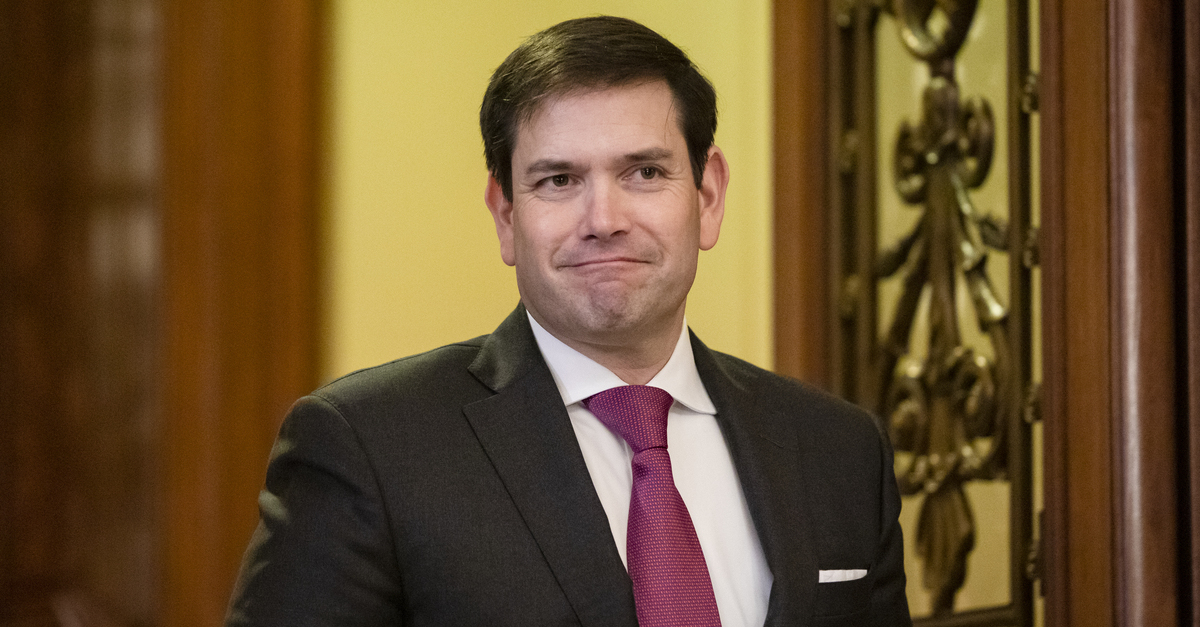
If facts are important, Marco Rubio could stand to learn a few. His recent claim that “only in the Third World” are high-level politicians tried and convicted of crimes is easily debunked.
In an interview Wednesday, Rubio espoused his unyielding support for twice-impeached ex-President Donald Trump.
“The first chance I get to end this trial, I’ll vote for it,” Rubio said in reference to Trump’s presumably upcoming trial in the U.S. Senate. The House of Representatives previously impeached — or accused — Trump of inciting the insurrection at the U.S. Capitol Complex on Jan. 6.
Rubio mounted this defense in support of a person who used to berate him by calling him “Little Marco.” But his endorsement of the ex-president went factually off the rails.
“This is terrible for the country; it sets a terrible precedent. Only in the Third World do you see this habitual use of the — uh — you know — prosecutions of former leaders,” Rubio ridiculously claimed. “You go through Latin America — virtually every immediate past president is under indictment or — or — in jail.”
Rubio either never knew or conveniently forgot that several leaders of first-world countries have been prosecuted in recent memory; some have even been incarcerated.
For instance, Silvio Berlusconi, the media mogul and former Prime Minister of Italy, was convicted and sentenced to four years in prison for tax fraud in 2013, though he wound up serving only community service because of his age. He was “expelled” from holding public office for a time after his conviction but was subsequently reelected to the European Parliament. His other alleged misdeeds are well documented. Other Italian leaders have also been convicted of crimes.
France’s former prime minister, François Fillon, was convicted more recently in June 2020 of corruption charges. He was considered a frontrunner to become the president of that country. He also was forced to pay a fine equivalent to $421,000 in U.S. dollars.
Former French President Jacques Chirac was tried after he left office over a job scandal which he used to fund his political party. “[H]e was excused from having to attend his 2011 corruption trial due to ill health,” The Guardian reported. He was convicted, but his two-year sentence was suspended, several outlets, including The New York Times, said.
And, prosecutors asked a judge to hand another former French president, Nicolas Sarkozy, a four-year prison term last December on accusations he “tr[ied] to bribe a judge with a plum retirement job in exchange for inside information on an inquiry into his campaign finances,” The Guardian also reported. A final verdict in the case is not expected until March 1 of this year.
Former Romanian Chamber of Deputies President Liviu Dragnea went to jail in 2019 after a corruption conviction. He was described as the “country’s most powerful politician” for his leadership role in the lower house of Romania’s bicameral legislature.
South Korea’s highest court recently upheld a 20-year prison sentence for Park Geun-Hye, South Korea’s former president, on a bribery conviction.
Former Israeli Prime Minister Ehud Olmert served time behind bars for bribery and obstruction of justice. He was released in 2017. Current Israeli Prime Minister Benjamin Netanyahu was indicted on corruption charges in Nov. 2019.
While we’re making a list, former Scottish First Minister Alex Salmond was tried but acquitted on sex assault charges. He claimed the case against him was a smear campaign. But he was tried.
Former Bulgarian Prime Minister Sergei Stanishev was tried but acquitted in a scandal alleging lost government documents.
For the record, France, Italy, Scotland, Israel, and South Korea are considered first-world, Western-aligned countries. Romania and Bulgaria are considered second-world countries due to their historical alignment with the Eastern bloc.
Rubio’s claim that only “Third World” countries force their leaders or former leaders to endure criminal prosecutions to score political points is, therefore, not accurate. While many foreign political leaders do claim their trials are motivated by political opposition, they are, indeed, tried and sometimes are convicted in courts of law.
[Photo by Samuel Corum/Getty Images]
